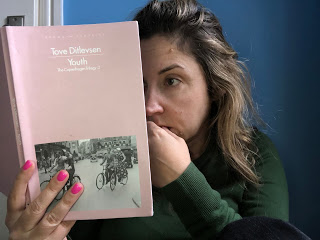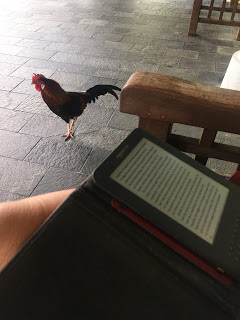Full disclosure, I haven’t actually read very much Stephen King. I may be minded to after reading this book. It’s charming and unpretentious guide to writing, mixed up with his life story, which is similarly charming and unpretentious.
Interestingly for someone whose reputation is based on thrillers, he is not a big believer in plot as the engine of the story. He says he tends to start with a setting, a theme, or a ‘what-if, and just go from there, trusting the plot with find him as he goes along. He believes you should write the first draft fast
Writing fiction, especially a long work of fiction, can be a difficult, lonely job; it’s like crossing the Atlantic Ocean in a bathtub. . . .If I write rapidly . . . I find that I can keep up with my original enthusiasm and at the same time outrun the self-doubt that’s always awaiting to settle in.
He advises when you begin at least 1000 words a day, with only one day off a week (no more; you’ll lose the urgency and immediacy of your story if you do.), though he does 2,000. He also has advice on re-writes
When you write a story, you’re telling yourself the story,; he said. ‘When you rewrite, your main job is taking out all the things that are not the story’
He even has an equation for this, being second draft = first draft – 10%
Also of interest was the story of his life. He has always been a big reader, and even today he carries a book whereever he goes (“You just never know when you’ll want an escape hatch.”). He grew up working class, and worked as a high school teacher, struggling to cover the bills for his wife and the two kids he had within five minutes of graduation. This is a tough time.
If I ever came close to despairing about my future as a writer, it was then. I could see myself thirty years on, wearing the same shabby tweed coats with patches on the elbows, potbelly rolling over my Gap khakis from too much beer. . . . and in my desk drawer, six or seven unfinished manuscripts which I would take out and tinker with from time to time, usually when drunk. If asked what I did in my spare time, I’d tell people I was writing a book . . . and of course I’d lie to myself, telling myself there was still time, it wasn’t too late, there were novelists who didn’t get started until they were fifty, hell, even sixty. Probably plenty of them.
Then he writes CARRIE. He hopes he might get a $10,000 advance if it is accepted. He nearly blacks out when they offer him $400,0000.
He struggles with various substance abuse issues (he doesn’t really remember writing CUJO apparently), and has a hilarious take on a number of different writers, who:”largely formed our vision of an existential English-speaking wasteland where people have been cut from one another and live in an atmosphere of emotional strangulation and despair” He doesn’t think it is co-incidental that they are mostly alcoholics. This seems a pretty good description of the emotional environment of much of the twentieth century literature, and I never considered that is was just because all the big writers were even bigger drinkers.


